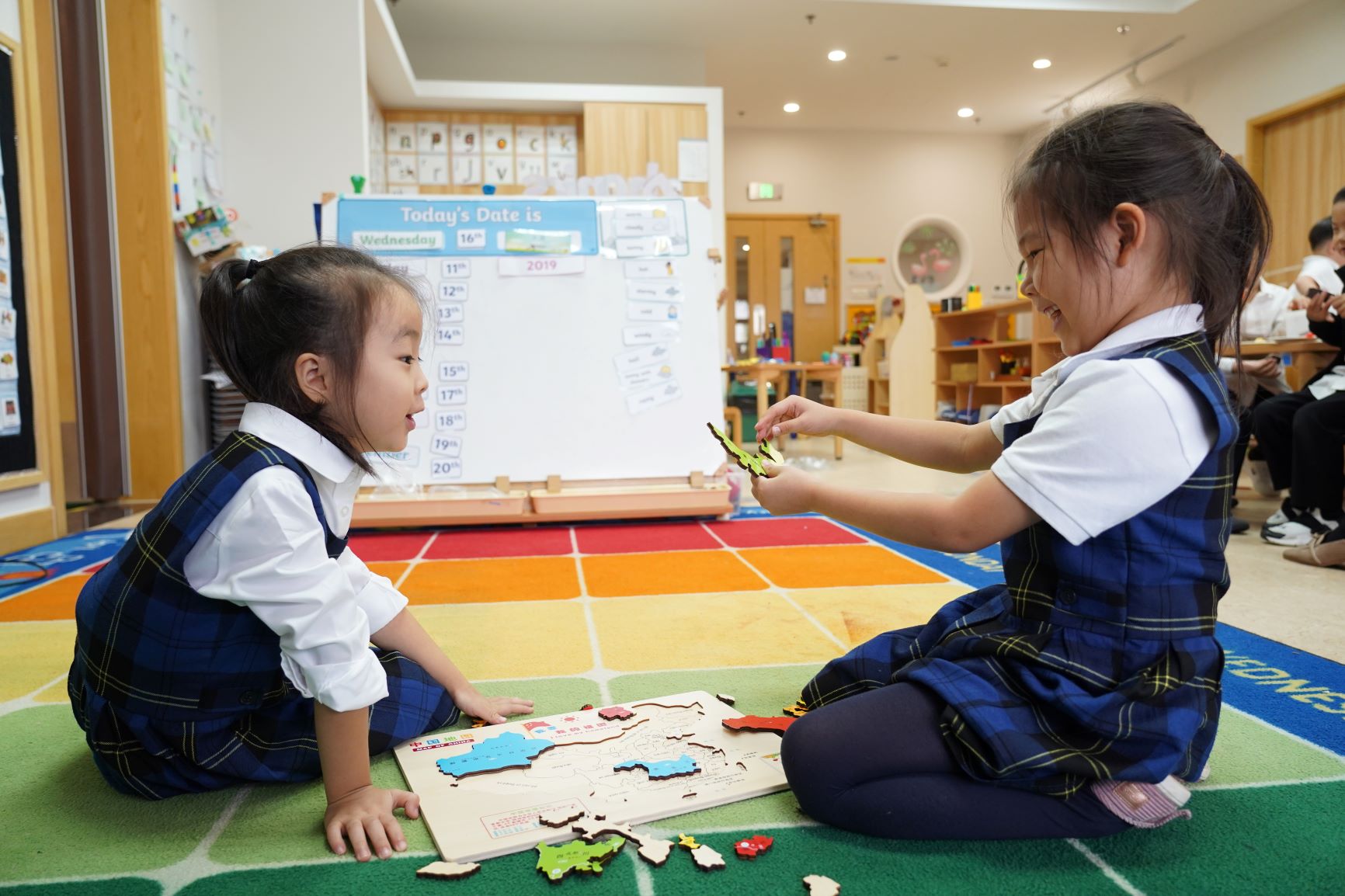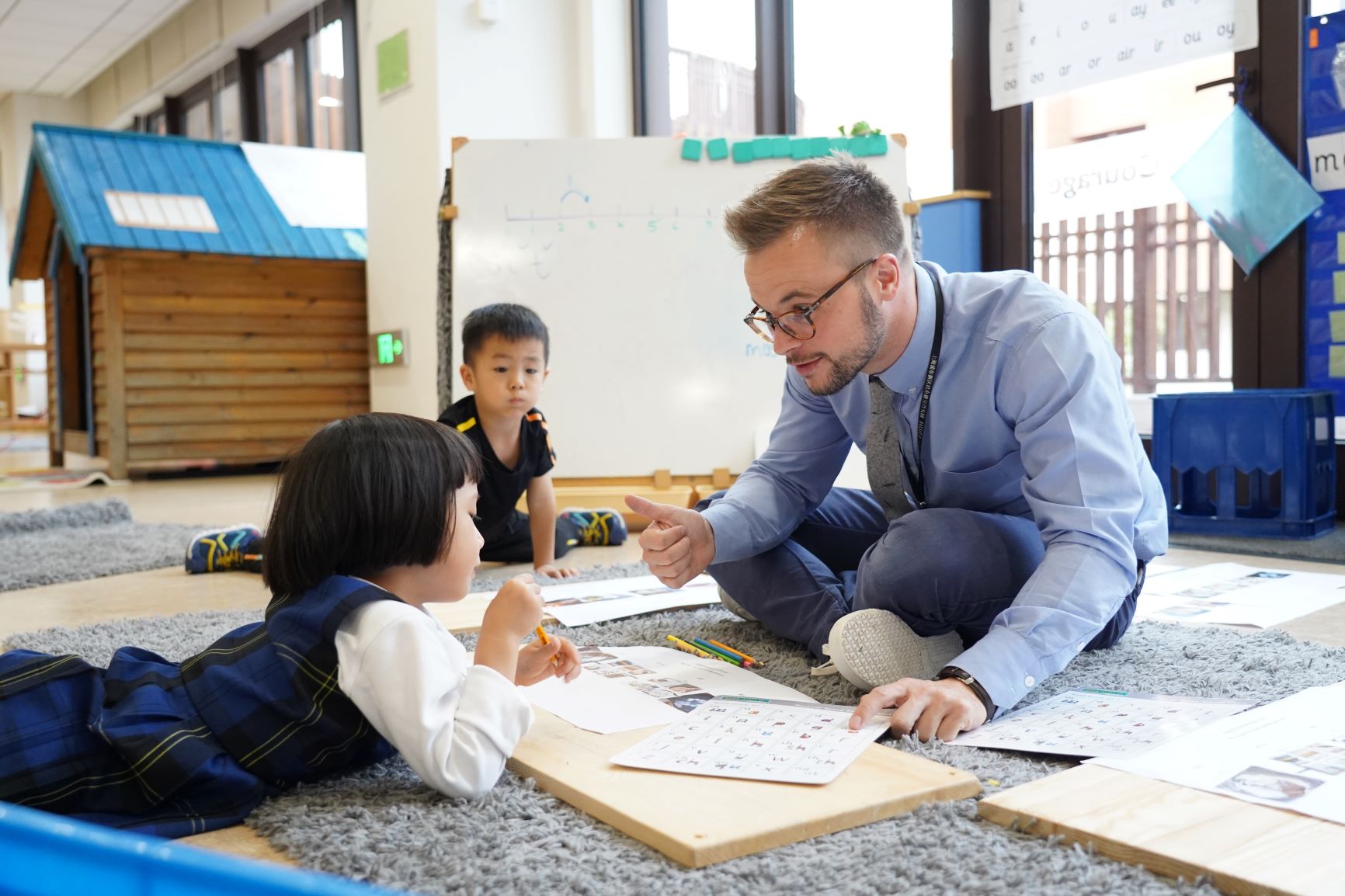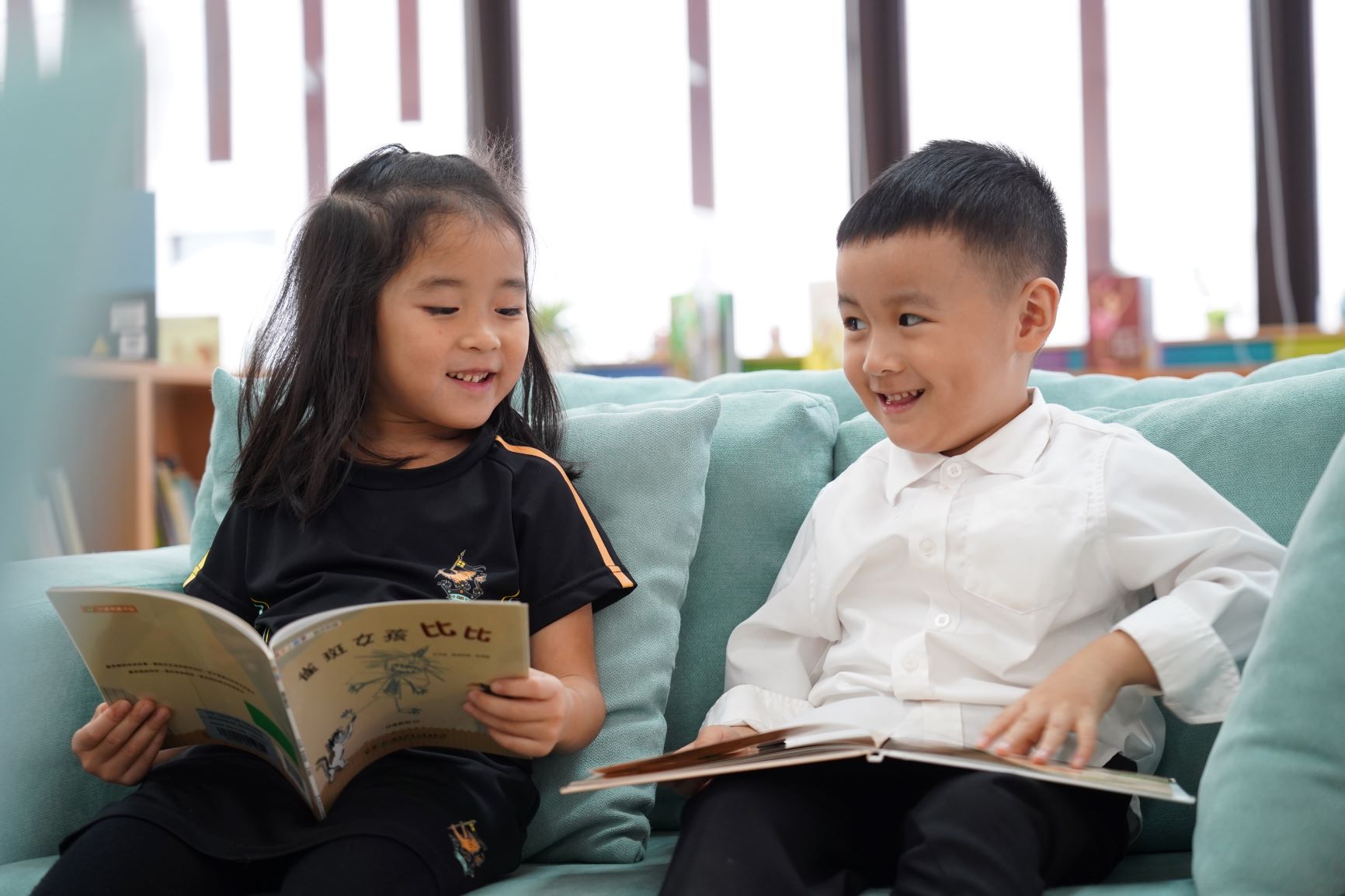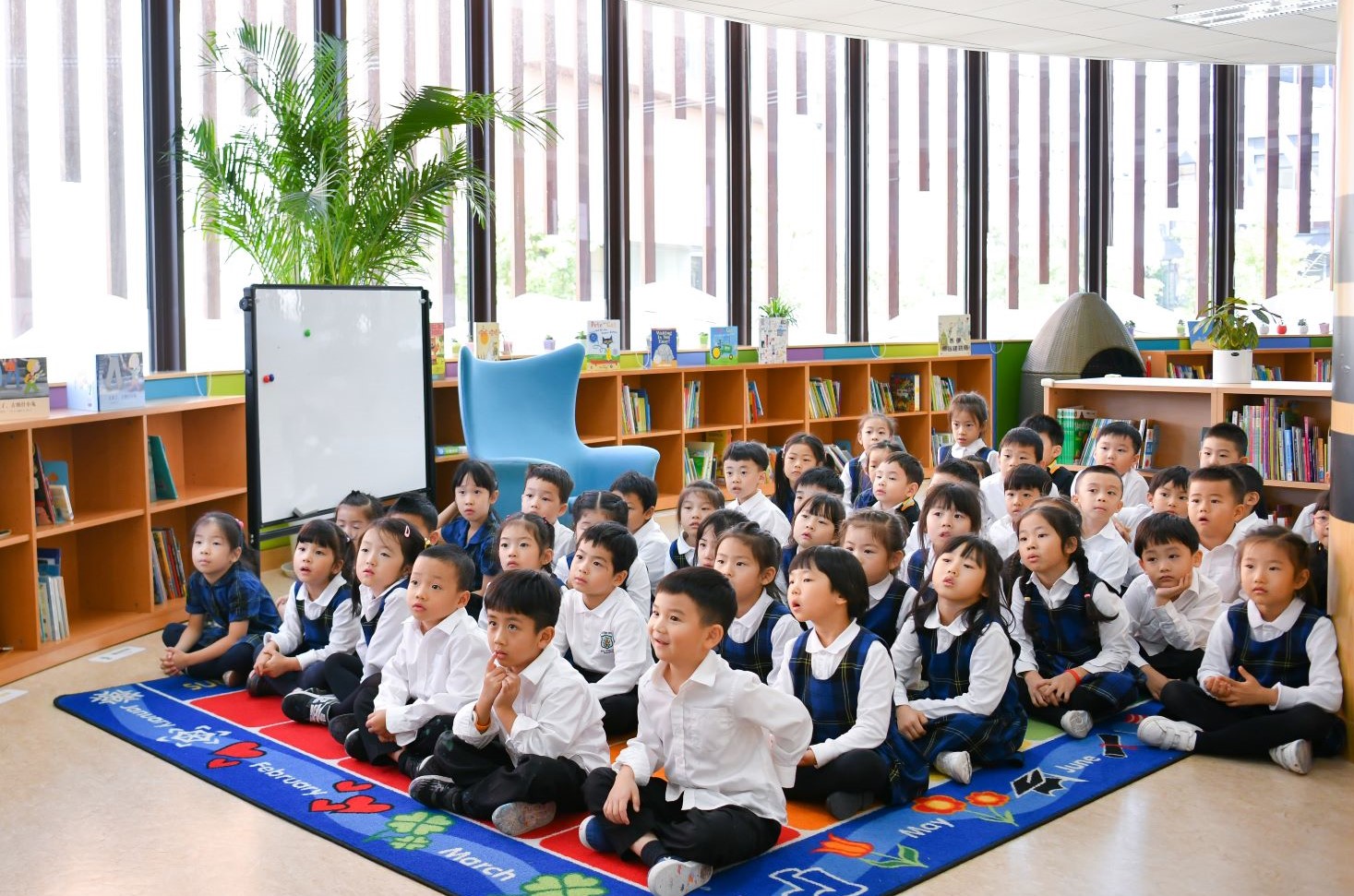
Communication is the basis of human interaction and it is one of the most important skills we can develop in life. It refers to the act of transferring information from one person to another and starts from the moment we are born, when we begin to interact with those around us through facial expressions and cries.
Language is a vital tool for communication and is a significant part of everyday life. It is not only a means of communicating thoughts and ideas, but it helps us to build social skills and friendships, confidence and self-esteem, as well as cultural ties.
 ‘Communication and language’ is a fundamental building block for the development of every child. It forms the last of the three prime areas of learning in this Insight series and consists of three aspects: Listening and Attention, Understanding, and Speaking.
Listening and Attention
This first aspect considers a child’s ability to focus their attention and listen in a range of situations, for example being able to listen to stories and respond appropriately or being able to give attention to what others say while engaged in another activity. It is a developmental stage vital to the whole process of acquiring language that must be practised, and it is therefore essential that children are provided with many opportunities to develop this, such as through spending time with adults or being involved in early turn-taking and play experiences.
‘Communication and language’ is a fundamental building block for the development of every child. It forms the last of the three prime areas of learning in this Insight series and consists of three aspects: Listening and Attention, Understanding, and Speaking.
Listening and Attention
This first aspect considers a child’s ability to focus their attention and listen in a range of situations, for example being able to listen to stories and respond appropriately or being able to give attention to what others say while engaged in another activity. It is a developmental stage vital to the whole process of acquiring language that must be practised, and it is therefore essential that children are provided with many opportunities to develop this, such as through spending time with adults or being involved in early turn-taking and play experiences.
 Understanding
Understanding language is very closely linked to listening and attention as children need to be able to listen and attend before they can understand. A young child will then gradually develop the ability to understand words in context, beginning with single words and building on this to develop a sense of more complex sentences and questions. These skills are essential for reading comprehension and for making sense of information in all other areas of learning.
Speaking
A child’s spoken language development is supported by attention, listening and understanding skills. It is only once children understand vocabulary, concepts and sentence structures that they can begin to use these elements in their expressive language. Speaking includes a child’s ability to use words, sentences and stories to be able to express their own feelings, needs, wants, and thoughts based on their own ideas and experiences. The store of words that children build up will help them to be effective and skillful communicators. Children require lots of opportunities to talk before they will be ready to communicate through writing.
Stages of communication and language development
The first five years of a child’s life are the most significant when it comes to the ability to communicate effectively as it is at this time that a child’s brain develops more rapidly than at any other time in life. These five years can be separated into three different periods to provide a better understanding of communication development at this stage.
• The first period starts at birth, long before an infant can speak and when babies start to build relationships and recognise voices of familiar people around them. They will communicate through turning when they are spoken to, reaching out, crying, and through facial expressions such as smiles.
• During the second period, from six to eighteen months, infants begin to intentionally communicate, even if they can’t necessarily verbalise their needs.
• During the third period, eighteen months through to five years, children start using more language in order to learn and communicate.
It is vital that during this time, young babies and children are given many opportunities to interact with responsive adults in order to ensure that communication and language development is supported as much as possible.
Understanding
Understanding language is very closely linked to listening and attention as children need to be able to listen and attend before they can understand. A young child will then gradually develop the ability to understand words in context, beginning with single words and building on this to develop a sense of more complex sentences and questions. These skills are essential for reading comprehension and for making sense of information in all other areas of learning.
Speaking
A child’s spoken language development is supported by attention, listening and understanding skills. It is only once children understand vocabulary, concepts and sentence structures that they can begin to use these elements in their expressive language. Speaking includes a child’s ability to use words, sentences and stories to be able to express their own feelings, needs, wants, and thoughts based on their own ideas and experiences. The store of words that children build up will help them to be effective and skillful communicators. Children require lots of opportunities to talk before they will be ready to communicate through writing.
Stages of communication and language development
The first five years of a child’s life are the most significant when it comes to the ability to communicate effectively as it is at this time that a child’s brain develops more rapidly than at any other time in life. These five years can be separated into three different periods to provide a better understanding of communication development at this stage.
• The first period starts at birth, long before an infant can speak and when babies start to build relationships and recognise voices of familiar people around them. They will communicate through turning when they are spoken to, reaching out, crying, and through facial expressions such as smiles.
• During the second period, from six to eighteen months, infants begin to intentionally communicate, even if they can’t necessarily verbalise their needs.
• During the third period, eighteen months through to five years, children start using more language in order to learn and communicate.
It is vital that during this time, young babies and children are given many opportunities to interact with responsive adults in order to ensure that communication and language development is supported as much as possible.
 Adults around a child are therefore the most important resource to support communication and language development and their essential role is to respond to a child’s attempts to communicate, as well as act as positive role models.
Strategies to support communication and language development
Adults around a child are therefore the most important resource to support communication and language development and their essential role is to respond to a child’s attempts to communicate, as well as act as positive role models.
Strategies to support communication and language development
 Finally, and most importantly, remember to be a good role model! Your child learns how to communicate by watching you carefully and when you talk with your child (and others) in a respectful way, this gives a powerful message about positive communication.
Finally, and most importantly, remember to be a good role model! Your child learns how to communicate by watching you carefully and when you talk with your child (and others) in a respectful way, this gives a powerful message about positive communication.